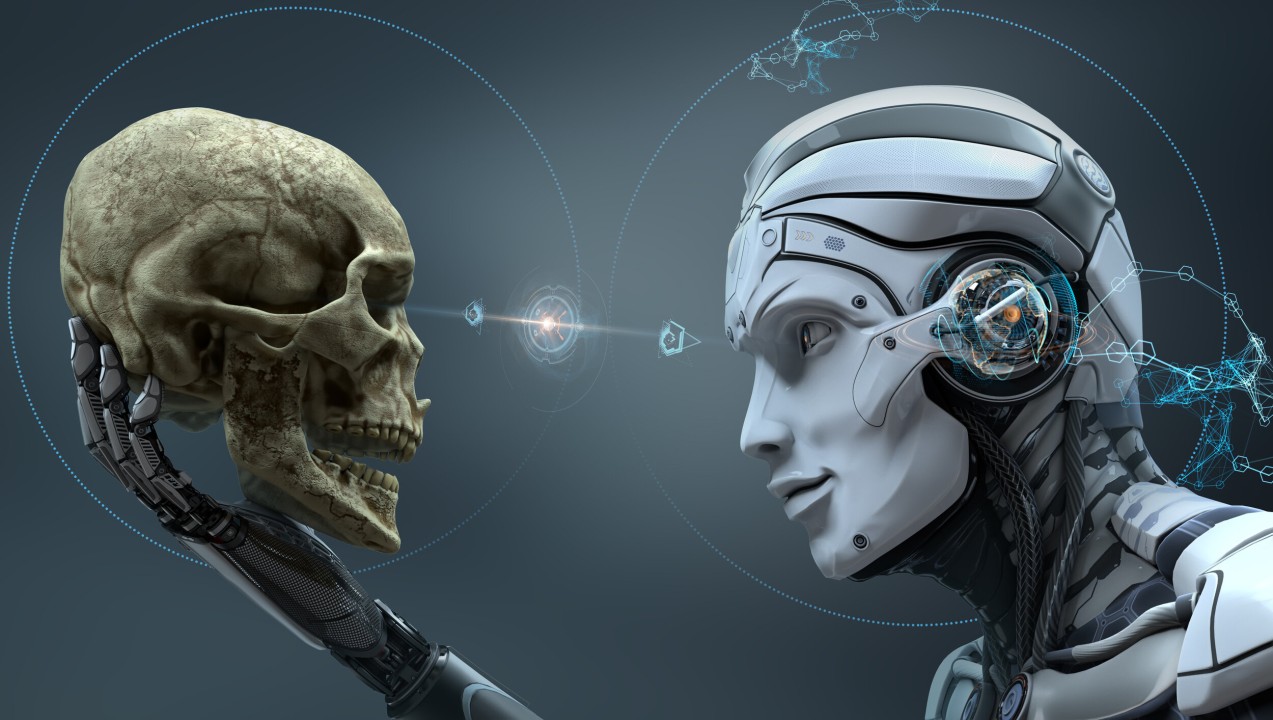Artificial Intelligence (AI) and Machine Learning (ML) are often spoken of as if they’re the same, yet they have distinct roles in the realm of technology. AI encompasses a broad range of tasks that mimic human intelligence, such as interpreting human language or recognizing visual elements. In contrast, ML is a specialized branch of AI focused on teaching machines to learn from data, thereby enhancing their capabilities over time. In this Blog we will Focus on How To Make a Career in Artificial Intelligence (AI) in 2024?, So Without Further ado Lets Begin.

AI and ML in Everyday Life
AI and ML are not just theoretical concepts, they are actively transforming our daily lives. Consider these examples:
- Autonomous Vehicles: AI’s role in developing self-driving cars is pivotal, with ML enabling these vehicles to understand and react to complex environments.
- Facial Recognition: This AI application is increasingly used for security and identification purposes by various agencies.
- Fraud Detection: Financial institutions are harnessing AI to identify and prevent fraudulent activities by analysing unusual transaction patterns.
- Virtual Personal Assistants: AI powers virtual assistants like Siri and Alexa, constantly improving their ability to understand and respond to our queries.
Careers in AI and ML
Pursuing a career in AI and ML promises to be both rewarding and in high demand. The field offers competitive salaries and a robust job market. But what does working in AI and ML involve? This journey starts with understanding the diverse job roles and acquiring the necessary skills and knowledge.
Different AI and ML Job Roles
- AI Engineer: Focuses on developing and training AI models, using ML algorithms and Deep Learning networks.
- Machine Learning Engineer: Specializes in creating and implementing ML models, from algorithm selection to infrastructure design.
- Data Scientist: Involves analysing data to build models for informed decision-making.
- Research Scientist: Works on innovative applications of ML, such as Natural Language Processing or Computer Vision.

Most In Demand AI and ML Job Roles in 2024
1. AI Engineer
- Responsibilities: An AI Engineer actively designs and implements AI models, using machine learning algorithms and deep learning networks. They focus on programming, training models, and integrating AI into various applications.
- Qualifications: Essential qualifications include a robust background in computer science, strong programming skills, especially in Python, and a deep understanding of machine learning concepts.
- Salary: On average, AI Engineers in the USA earn between $100,000 and $120,000 annually. Furthermore, the US Bureau of Labour Statistics reports their median annual salary as $131,490.
2. Machine Learning Engineer
- Responsibilities: Machine Learning Engineers develop and deploy machine learning models. They also select the right algorithms and design infrastructure to support these models.
- Qualifications: They must be proficient in data science, programming, and statistics. Additionally, experience with ML frameworks like TensorFlow or PyTorch is often essential.
- Salary: In the United States, Machine Learning Engineers typically earn between $129,669 and $160,691 per year. Significantly, the most experienced professionals in this field can make up to $200,000 per year.
3. Data Scientist
- Responsibilities: Data Scientists actively engage in collecting, cleaning, analysing, and interpreting large data sets. They build predictive models that enable data-driven decision-making.
- Qualifications: Key skills include expertise in data analysis, statistical methods, and proficiency in tools like Python, R, and SQL, alongside a strong background in mathematics or statistics.
- Salary: The average salary for a Data Scientist in the United States stands at approximately $124,681 annually, with variations based on experience and industry.
4. Research Scientist (AI/ML)
- Responsibilities: AI and ML Research Scientists focus on developing new algorithms and applications, tackling innovative problems in areas like Natural Language Processing and Computer Vision.
- Qualifications: Typically, this role requires a PhD or extensive research experience in a relevant field, coupled with a profound understanding of ML and AI principles.
- Salary: The average salary for AI Research Scientists in the US ranges from $108,490 to $130,323 per year.

Future Prospects in AI Careers
The future prospects of Artificial Intelligence (AI) are both limitless and exhilarating. AI’s potential to revolutionize every industry sector makes it one of the most significant technological breakthroughs of our era. As AI continues to evolve, it becomes increasingly sophisticated at understanding and responding to the complexities of the world around us. This evolution is not only technical but also impacts global socio-economic landscapes.
AI is poised to address some of the world’s most pressing challenges, including climate change, healthcare, food security, and beyond. Its ability to process vast amounts of data and provide insights makes it invaluable for developing solutions to these critical issues. Furthermore, the job market in AI is expected to see substantial growth. With industries across the board looking to harness the power of AI, the demand for skilled AI professionals is predicted to surge, creating a wealth of opportunities for those equipped with the right skills and knowledge.

Essential Skills and Knowledge for a Career in AI
1. Learning the Basics of Programming:
Programming forms the foundation of AI and ML technologies. A deep understanding of languages like Python, Java, and C++ is crucial. Python, with its simplicity and vast library ecosystem, is particularly favored in AI for developing algorithms and models. Java’s platform independence and C++’s performance efficiency also make them valuable. Mastery of these languages enables the creation of sophisticated AI applications, from data processing to algorithm implementation.
2. Understanding Mathematics and Statistics:
Mathematics and statistics are the bedrocks of AI. Mathematics, especially areas like linear algebra, calculus, and probability, is essential for understanding the underpinnings of AI algorithms. Statistics, on the other hand, is crucial for data analysis, helping in making sense of complex data sets and building predictive models. These disciplines are fundamental for designing algorithms that can interpret and analyse data efficiently and accurately.
3. Familiarity with Machine Learning Algorithms:
A comprehensive understanding of various machine learning algorithms is pivotal in AI. These include supervised learning algorithms like linear regression and decision trees, unsupervised learning algorithms like clustering, and neural networks in deep learning. Each algorithm has unique properties and applications, and knowing when and how to use them is key to developing effective AI solutions.
4. Deep Learning, NLP, and Computer Vision:
Proficiency in deep learning, NLP, and CV is crucial for advancing in AI. Deep learning, a subset of ML, is essential for tasks that require interpretation of large, complex datasets. NLP allows machines to understand and interpret human language, making it vital for developing AI that interacts with users, like chatbots. Computer Vision enables machines to process and interpret visual data from the world, crucial in fields like medical imaging and autonomous vehicles.
5. Gaining Experience with Data:
Data is the lifeblood of AI. Skills in managing, analysing, and interpreting large datasets are crucial. This involves data cleaning, data visualization, and the use of data manipulation tools. Working with real-world data sets provides invaluable insights and practical experience, which is essential for building effective AI models.
6. Keeping Up-to-Date with AI Advancements:
AI is a field marked by rapid development and constant change. Staying updated with the latest advancements, technologies, and methodologies in AI is essential. This includes keeping abreast of the latest research, attending conferences, participating in online forums, and continuously learning through courses and certifications. This not only enhances skills but also ensures relevance in this fast-evolving field.
Each of these skills is a vital component in the toolkit of an AI professional. Together, they form the foundation upon which a successful career in AI can be built and sustained.
Academic Pathways to a Career in AI
The journey towards a career in Artificial Intelligence (AI) and Machine Learning (ML) often begins with formal education. Degrees and certifications in these fields are of paramount importance for several reasons:
- Foundation of Knowledge: A degree in computer science, data science, or a related field provides a comprehensive foundation. It covers essential topics like programming, statistics, algorithms, and more. Specialized AI and ML courses dive deeper, offering insights into complex areas such as neural networks and cognitive computing.
- Credibility and Recognition: Holding a degree or certification from a recognized institution adds credibility to a professional’s profile. It signals to employers a certain level of competence and dedication to the field.
- Networking Opportunities: Academic programs often provide networking opportunities with peers, professionals, and professors. These connections can be invaluable for future career prospects.
- Research and Development Skills: Higher education, especially at the master’s and Ph.D. levels, is critical for those aspiring to engage in AI research or advanced technical roles. It provides an environment to develop critical thinking, problem-solving, and innovative research skills.
- Specialization and Expertise: Certifications and advanced degrees allow professionals to specialize in niche areas within AI and ML, making them more attractive to employers looking for specific skill sets.
List of Top Artificial Intelligence Certifications in 2024
As AI continues to grow and progress, many professionals are turning to this field for their careers. If you’re looking to embark on an AI career, the following certifications and courses can provide a solid foundation:
1. Google’s Learn with Google AI
This course introduces the basics of machine learning, covering TensorFlow and neural network design. It’s perfect for beginners with no prior machine learning experience and serves as a TensorFlow primer for more experienced learners.
2. Stanford University’s Machine Learning Course
Offered by Stanford University, this course is tailored for professionals keen on applying machine learning to enhance web search and speech recognition. It delves deep into statistical methods like backpropagation and linear regression, and introduces candidates to MATLAB, a popular language in AI.
3. Google’s Machine Learning Course
Google offers a comprehensive course focusing on deep learning and the design of autonomous systems that learn from extensive, complex datasets. Ideal for those with basic machine learning knowledge, this course is suited for aspiring data analysts, machine learning engineers, and data scientists.
4. Columbia University’s Machine Learning Course
This course from Columbia University focuses on solving real-world problems using supervised and unsupervised learning models and methods. Topics covered include sequential models, clustering methods, matrix factorization, and classification and regression techniques.
5. Nvidia’s Fundamentals of Deep Learning for Computer Vision
This course Centres on the technical basics of computer vision – the ability of computers to process and interpret visual information. It covers image classification, object recognition, and the significant role GPUs play in computer vision applications.
6. MIT’s Professional Certificate Program in Machine Learning and Artificial Intelligence
This advanced program is designed for professionals with a minimum of three years of experience and a master’s degree in a relevant field. It covers key concepts, algorithms, and practical applications in AI and machine learning, making it ideal for professionals looking to deepen their expertise.
These courses and certifications offer a range of learning opportunities, from beginner to advanced levels, and can be instrumental in laying the groundwork for a successful career in AI.
Final Thoughts
The journey to a successful career in Artificial Intelligence (AI) is both challenging and rewarding. The importance of investing in education and skills cannot be overstated. As AI continues to advance and permeate various sectors, the demand for skilled professionals in this field is growing at an unprecedented pace. This growth translates into a highly competitive job market, where the most successful candidates are those who have not only foundational knowledge but also specialized skills and continuous learning habits.
If you’re considering a career in AI, or looking to advance further in this exciting field, now is the time to act. Begin by assessing your current skill set and identifying any gaps in your knowledge. Explore the courses and certifications that align with your career goals. Engage with the AI community through forums, conferences, and networking events. And most importantly, embrace a mindset of continuous learning and curiosity.
Remember, the path to a successful career in AI is as much about the journey as it is about the destination. Each step you take in enhancing your education and skills not only prepares you for the challenges of today’s job market but also positions you to be a part of shaping the future of this transformative technology.
So, This was Our take on How To Make a Career in Artificial Intelligence (AI) in 2024?
Also, Read: Freelance AI Jobs That Are in High Demand in 2024
FAQs
Is AI a good career?
Yes, AI is an excellent career choice. It’s a field that’s rapidly growing and evolving, offering a wide range of opportunities across various industries. Careers in AI are not only intellectually stimulating but also offer the potential for high job satisfaction due to the innovative nature of the work.
How do I start a career in AI?
To start a career in AI, begin by gaining a strong foundation in programming, mathematics, and statistics. Consider pursuing relevant educational qualifications such as a degree in computer science or data science. Gain practical experience through personal projects, internships, or online courses specializing in AI and ML.
Does a career in AI pay well?
Yes, careers in AI generally offer competitive salaries, reflecting the high demand for these skills in the job market. Salaries can vary based on factors like experience, location, and specific role, but AI professionals often command higher-than-average wages.
Which AI jobs are in demand?
In-demand AI jobs include Machine Learning Engineer, Data Scientist, AI Research Scientist, AI Engineer, and NLP Specialist. Roles that focus on AI applications in healthcare, finance, and technology are particularly sought after.
Which AI branch is best?
The “best” AI branch can vary depending on your interests and career goals. Popular branches include machine learning, deep learning, natural language processing, and computer vision. Each has unique applications and challenges, so choose one that aligns with your passion and the industry you’re interested in.
Can I learn AI by myself?
Yes, it’s possible to learn AI by yourself, especially with a plethora of online resources available. However, self-learning requires discipline and motivation. Online courses, tutorials, and community forums can be invaluable resources for independent learners.
What skills do I need for AI?
Essential skills for AI include programming (especially in Python, Java, or C++), a strong foundation in mathematics and statistics, familiarity with machine learning algorithms, and knowledge of AI-specific areas like deep learning, NLP, and computer vision.
Is it hard to learn AI?
Learning AI can be challenging due to its complex concepts and the mathematical and technical knowledge required. However, with dedication, the right resources, and a structured learning approach, it is certainly attainable.
What are the qualifications for AI?
Qualifications for a career in AI typically include a bachelor’s degree in computer science, data science, or a related field. Advanced roles may require a master’s degree or PhD, especially for research-intensive positions. Additionally, certifications in specific AI technologies or tools can be beneficial.



